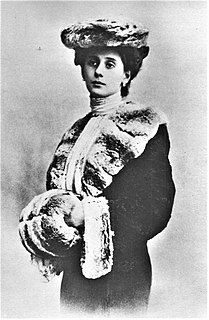A Quote by Sabine Baring-Gould
There is no myth relative to the manners and customs of the English that in my experience is more tenaciously held by the ordinary Frenchman than that the sale of a wife in the market-place is an habitual and an accepted fact in English life.
Related Quotes
What is Americanization? It manifests itself, in a superficial way, when the immigrant adopts the clothes, the manners and the customs generally prevailing here. Far more important is the manifestation presented when he substitutes for his mother tongue the English language as the common medium of speech.
Some stories I write in Swedish, some in English. Short stories I've almost exclusively written in English lately, mostly because there's such a small market for them in Sweden and it doesn't really pay either. So, the translation goes both ways. What also factors in is that I have a different voice in English, which means that a straight translation wouldn't be the same as if I'd written it in English originally.
At every point I wished that I was born English. They need to make it colder in here. You could hang meat in this room. But, yeah...I grew up in a very English household. My folks were from Liverpool. I've said this before, but there is nothing more English than an Englishman that no longer lives in England.







































